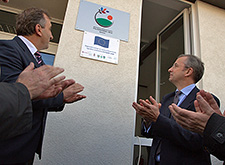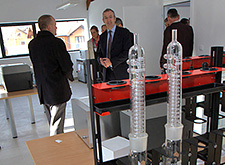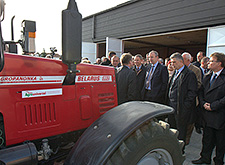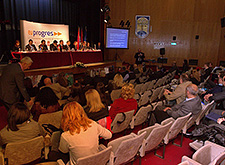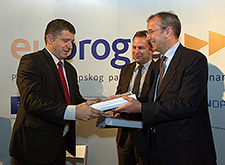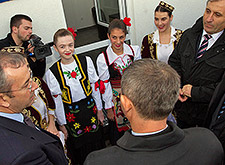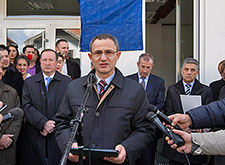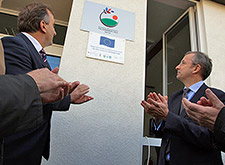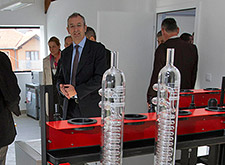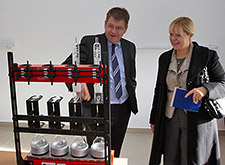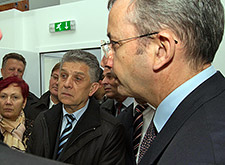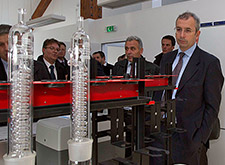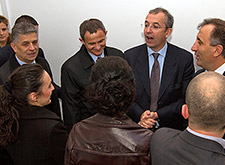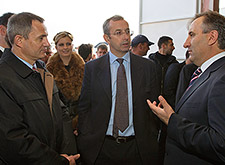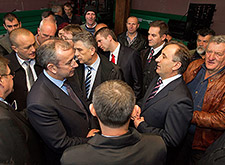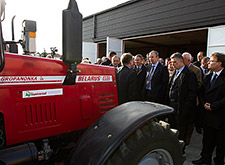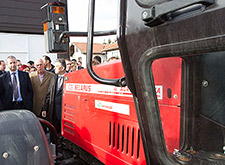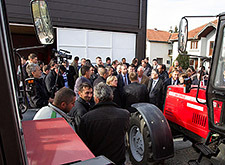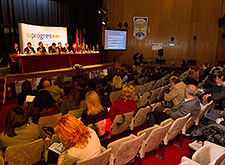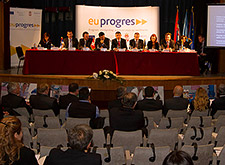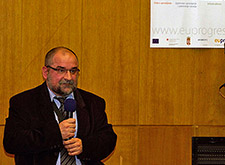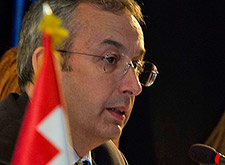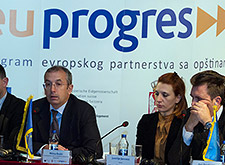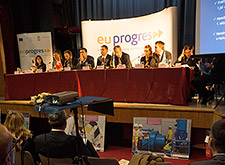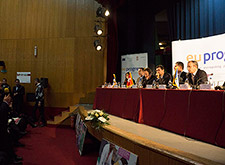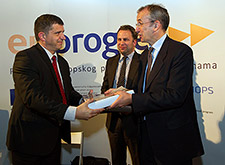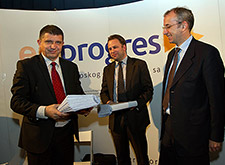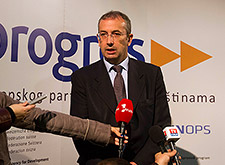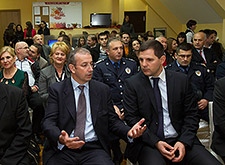Pešter Products on the Way to European Union
20 November 2013, Sjenica, Nova VarošDuring the first day of his visit to South West Serbia, Head of European Union Delegation to the Republic of Serbia, Ambassador Michael Davenport, marked the end of works on the construction of the Regional Centre for Development of Agriculture in Sjenica, together with the Minister of Agriculture, Dragan Glamočić, and Minister without Portfolio, in charge of sustainable development of underdeveloped areas, Sulejman Ugljanin. The European Union and Swiss Government invested through EU PROGRES 200,000 EUR, Sjenica Municipality 40,000 EUR and Serbian Office for the Development of Under Developed Areas 45,000 EUR to build and equip this regional centre.
The regional centre in Pešter highlands will provide support to agricultural producers to apply new technologies in the area of agriculture, product control and standardization, increased productivity and production volume, which will eventually lead to their increased income. Thus the production will be enhanced, especially of milk and dairy products in over 200 rural households. During the first year of operation, the Centre should employ 14 workers.
“Traditional Pešter products – cheese, smoked ham and sudžuk sausage – are famous not only in Serbia but the entire region. They represent national brands and have potential to conquer the markets of the European Union. However, to capitalise the potential of the Pešter area, it is necessary to strengthen its competitiveness, by applying modern knowledge and technologies and improve the quality and quantity of its products,” Ambassador Michael Davenport said.
“Dear agricultural producers, the door of this Centre will open many opportunities for you. You have a fruitful environment and hardworking hands, and now you also have a modern centre to help you prove the quality of your products,” Minister of Agriculture, Dragan Glamočić, said.
Next on his visit, Head of Delegation participated in the Steering Committee Meeting of EU PROGRES programme in Nova Varoš, after which he handed to the Mayor Dimitrije Paunović, technical documentation for the development of the regional landfill Banjica. This document is prerequisite for the construction of the landfill, which will help resolve the issue of municipal waste disposal in Nova Varoš, Sjenica, Priboj and Prijepolje. Within the project funded by the European Union and Swiss Government through EU PROGRES with 238,870 EUR, geological, geotechnical and hydrological analyses were performed, as well as redesign of the technical project for the landfill.
“Nova Varoš, Priboj, Prijepolje and Sjenica will benefit greatly from this project. These four municipalities recognised the importance of the programme, established cooperation, were ready to invest municipal resources and establish a joint company to manage the landfill. This approach in not a guarantee for success, but is prerequisite for success and therefore praiseworthy. I encourage local self-governments to continue to cooperate on the Banjica landfill and other projects and I am looking forward to more joint initiatives of other self-governments,” Davenport said.
“Switzerland has the pleasure to support EU PROGRES, because it is strengthening the local level of authority, which is very important for Switzerland. EU PROGRES has helped to strengthen local capacities through infrastructural development, but also the development of good governance,” Jean-Luc Oesch, Deputy head of Mission, Swiss Embassy, said during the Steering Committee Meeting.
Ambassador Davenport will begin the second day of his visit, Thursday 21 November, by handing over equipment and furniture for the kindergarten Poletarac in Tutin, expanded within the project funded through EU PROGRES. After this, the Head of Delegation will hand over modern sewing machines and other learning tools to the Textile and Leather Design School, to establish student workshops within the project “Strengthened professional development in the field of textile, footwear and clothing industry” supported by European Union through EU PROGRES.
